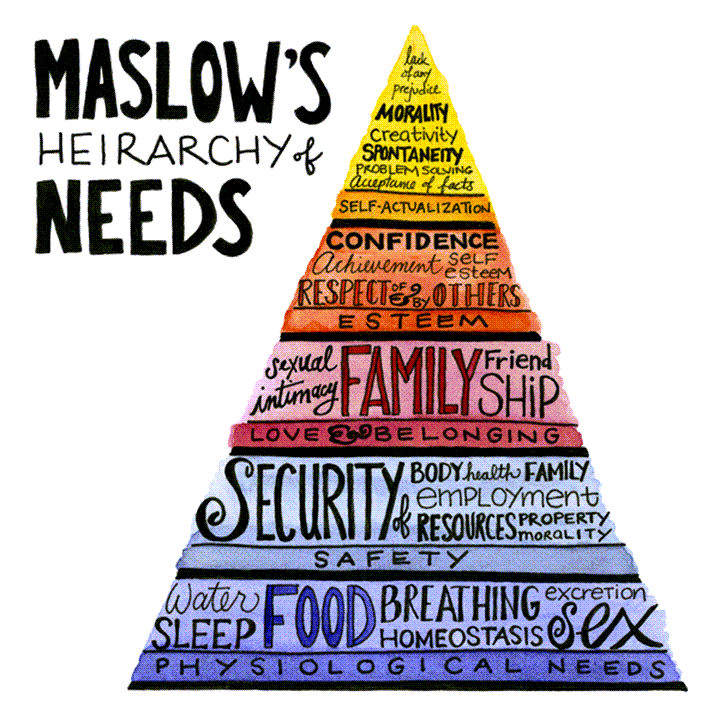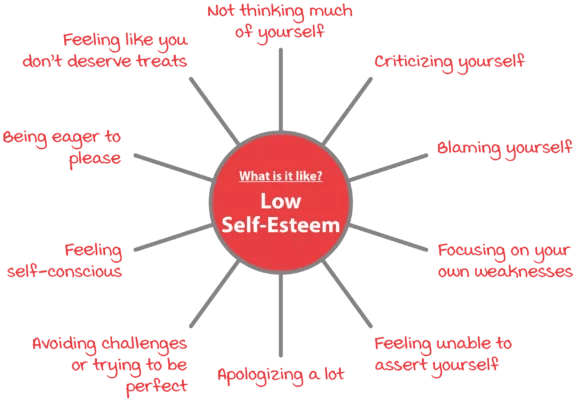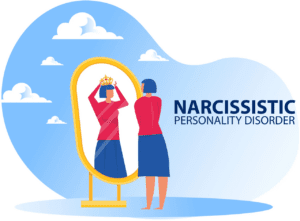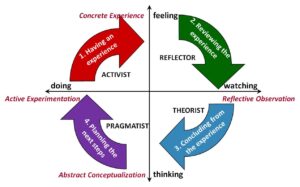What is Self-Esteem?

Self-esteem is a subjective sense of overall personal worth or value. It is based on one’s opinions and beliefs about oneself.
Healthy Self-Esteem can influence motivation, mental well-being, and overall quality of life. Conversely, having Self-Esteem that is either too high or too low can be problematic.
Understanding your unique Self-Esteem level can help you strike a proper balance for yourself.
Possessing little Self-Regard can make people depressed, fall short of their potential, or tolerate abusive relationships and situations.
Too much self-love, on the other hand, results in an off-putting sense of entitlement and an inability to learn from failures.
It can also signify Clinical Narcissism, in which individuals may behave Self-Centered, arrogant, and manipulatively.
Self-esteem can influence life in myriad ways, from academic and professional success to relationships and mental health.
Self-esteem, however, is not an immutable characteristic; personal and professional successes and setbacks can fuel fluctuations in feelings of Self-Worth.
People who experience a steady diet of disapproval from significant others—family, supervisors, friends, teachers—might have low Self-Esteem, but the healthy individual can weather off-putting evaluations.
Each person’s experience is different, but self-esteem seems to rise and fall in predictable, systematic ways throughout one’s lifespan.
Research suggests that self-esteem grows to varying degrees until age 60, when it remains steady before beginning to decline in old age.
Self-Actualization vs. Self-Esteem
Self-actualization represents the pursuit of reaching one’s full potential.

In 1943, Abraham Maslow proposed the hierarchy of psychological needs, illustrating an order of human motivation.
Often depicted as a pyramid because Maslow initially suggested that we must satisfy our Physiological Needs first, followed by our need for Safety, then the need for Love and a Sense of Belonging, then the need for Self-Esteem, and finally, the need for Self-Actualization in that order.
Self-actualization occurs when the more basic needs are met or when they are completed.
Then, personal and social fulfillment becomes possible through creativity, intellectual growth, and social progress.
Maslow later clarified that the order in the hierarchy “is not nearly as rigid” as he originally implied.
For example, for some, the need for Self-Esteem could be more important than the need for Love. For others, the need for creative fulfillment may supersede even the most Basic Needs.
While these needs and the concept of Self-Esteem are certainly related, Maslow’s interpretation of self-esteem was focused more on external factors, such as respect, status, recognition, accomplishment, and prestige.
There is a component of Self-Esteem within this level of the hierarchy, but Maslow felt that the esteem of others was more important for development and fulfillment than Self-Esteem.
He explained that for one to achieve Self-Actualization and grow, one must meet their need for inner respect and esteem from others.
Self-Acceptance vs. Self-Esteem
Self-Esteem and Self-Acceptance are often confused or even considered identical by most people.
Let’s address this misconception by considering fundamental differences in the nature and consequences of Self-Esteem and unconditional Self-Acceptance.
- Self-esteem is based on evaluating oneself and rating one’s behaviors and qualities as positive or negative, defining oneself as worthy or unworthy.
- Self-acceptance, however, is how the individual relates to the self in a way that allows it to be as it is. Acceptance is neither positive nor negative; it embraces all aspects and experiences of the self.
- Self-esteem uses comparisons to evaluate the self and ‘decide’ its worth.
- Self-acceptance stems from the realization that there is no objective basis for determining a human being’s value. Thus, with Self-Acceptance, the individual affirms who they are without comparisons.
- Self-esteem is contingent on external factors, such as performance, appearance, or social approval, that form the basis for evaluating oneself.
- Self-acceptance means feeling satisfied with oneself despite external factors, as this sense of worthiness is not derived from meeting specific standards.
- Self-acceptance provides a secure and enduring positive relationship with oneself and is strongly associated with numerous positive psychological well-being markers.
- While Self-Esteem appears to be associated with some markers of well-being, such as high life satisfaction and less anxiety, there is also a “dark side” of Self-Esteem, characterized by egotism and Narcissism.
Self-Concept vs. Self-Esteem
Self-esteem is not Self-Concept, although Self-Esteem may be a part of Self-Concept.
Self-concept is our perception of ourselves, our answer when we ask ourselves, “Who am I?”
Self-concept is about knowing one’s tendencies, thoughts, preferences and habits, hobbies, skills, and areas of weakness. Awareness of who we are is the concept of ourselves.
Purkey (1988) describes Self-Concept as:
“The totality of a complex, organized, and dynamic system of learned beliefs, attitudes and opinions that each person holds to be true about his or her personal existence”.
According to Carl Rogers, founder of client-centered therapy
“Self-Concept is an overarching construct, and Self-Esteem is one of its components.”
Self-Image vs. Self-Esteem
Another similar term with a different meaning is Self-Image, which is identical to Self-Concept in that it is all about how you see yourself.
Instead of being based on reality, it can be found in false and inaccurate thoughts about ourselves.
Our Self-Image may be close to or far from the truth, but it is generally not entirely in line with objective reality or how others perceive us.
Self-Worth vs. Self-Esteem
Self-esteem is similar to Self-Worth but with a small (although significant) difference: Self-esteem is what we think, feel, and believe about ourselves, while Self-Worth is the more global recognition that we are valuable human beings worthy of Love.
Self-Confidence vs. Self-Esteem
Self-esteem is not Self-Confidence; self-confidence is about trust in yourself and your ability to deal with challenges, solve problems, and successfully engage with the world.
As you probably noted from this description, Self-Confidence is based more on external measures of success and value than internal measures that contribute to self-esteem.
One can have high Self-Confidence, particularly in a specific area or field, but still lack a healthy sense of overall value or Self-Esteem.
Self-Efficacy vs. Self-Esteem
Like self-confidence, self-efficacy is also related to self-esteem but is not a proxy for it.
Self-efficacy is the belief in one’s ability to succeed at specific tasks.
You could have high Self-Efficacy when it comes to playing basketball but low Self-Efficacy when it comes to succeeding in math class.
Unlike Self-Esteem, Self-Efficacy is more specific than global, based on external success rather than internal worth.
Self-Compassion vs. Self-Esteem
Finally, Self-Esteem is also not Self-Compassion. Self-compassion centers on how we relate to ourselves rather than how we judge or perceive ourselves.
Being Self-Compassionate means we are kind and forgiving to ourselves and avoid being harsh or overly critical of ourselves.
Self-compassion can lead us to healthy Self-Esteem, but it is not Self-Esteem.
Signs of Strong Self-Esteem
The confident person is easily spotted and commands attention. But there’s a healthy balance between too little and too much Self-Worth.
Here are some signs that an individual has strong Self-Esteem:
- Knows the difference between confidence and arrogance.
- Is not afraid of feedback.
- Do not people please or seek approval.
- Is not scared of conflict.
- Can set boundaries.
- Can voice needs and opinions.
- They are assertive but not pushy.
- They are not a perfectionist.
- They are not afraid of setbacks.
- Do not fear failure.
- Do not feel inferior.
- Accepts who they are.
Signs of Low Self-Esteem

You may need to work on how you perceive yourself if you exhibit any of these signs of poor self-esteem:
- Negative outlook.
- Lack of confidence.
- Inability to express your needs.
- Focus on your weaknesses.
- Excessive feelings of shame, depression, or anxiety.
- The belief that others are better than you.
- Trouble accepting positive feedback.
- Intense fear of failure.
Healthy Self-Esteem
Healthy Self-Esteem is based on how we feel about what we can control. For example, you might not directly control how much money you make.
Still, you can control how hard you work and the skills you focus on to improve your chances of earning more.
So, instead of beating yourself up for not making much money, you take pride in your work ethic and ability to learn new things and feel good about them.
This makes you feel like a competent person who eventually earns more money.
Toxic Self-Esteem
Toxic Self-Esteem is derived from external, uncontrollable things in one’s life. This makes one’s Self-Worth much more fragile.
The slightest indication that you’re not living up to some external metric can bring the whole facade down.
For example, if you base your Self-Worth on whether or not everyone likes you, well, as long as you think everyone wants you, you’ll feel good about yourself.
But it also turns you into an overly-sensitive little dickhead, where every little awkward conversation or irritated look makes you question not just your Self-Worth but the value of life itself.
Toxic forms of Self-Esteem arise when we pursue Self-Esteem for its own sake, as an end in itself, rather than just experiencing it as a byproduct of being an intelligent, well-adjusted human being.
When we do this, we end up spending all of our time and energy trying to feel good about something instead of actually becoming good at it.
Toxic Self-Esteem fails because setbacks, thorny challenges, and the world taking a shit on us now and then are inevitable.
They are also what pushes us to grow as humans. But when we believe we deserve to feel good all the time, anything that makes us feel bad isn’t just a problem to be addressed; it becomes a personal attack on us.
How to Improve Your Self-Esteem
Be nice to yourself.
That little voice that tells you you’re killing it (or not) is way more powerful than you might think. Make an effort to be kind to yourself; if you slip up, try challenging negative thoughts.
A good rule of thumb is to speak to yourself as you’d talk to your mates. This can be hard at first, but practice makes perfect. If you want pointers, check out our tips for talking yourself up.
You be you.
Comparing yourself to others is a surefire way to start feeling crummy. Instead, focus on your goals and achievements rather than measuring them against someone else’s.
Nobody needs that kind of pressure!
Get moving
Exercise is a great way to increase motivation, practice setting goals, and build confidence. Breaking a sweat also cues the body to release endorphins, the feel-good hormones.
Nobody’s perfect.
Always strive to be the best version of yourself, but it’s also important to accept that perfection is an unrealistic goal.
Remember that everyone makes mistakes.
You’ve got to make mistakes to learn and grow, so try not to beat yourself up.
Focus on what you can change.
Getting hung up on things out of your control is easy, but it won’t achieve much.
So, instead, focus your energy on identifying the items within your control and seeing what you can do about them.
Do what makes you happy.
If you spend time doing what you enjoy, you’re more likely to think positively.
So try to schedule a little time every day.
Whether you spend time reading, cooking, or just chilling out on the couch, make time for it if it makes you happy.
Celebrate the small stuff.
You got up on time this morning. Tick. You poached your eggs to perfection.
Winning. Celebrating small victories is a great way to build confidence and feel better.
Be a pal.
Being helpful and considerate to others will undoubtedly boost their mood, but it will also make you feel good about yourself.
Surround yourself with a supportive squad.
Find people who make you feel good about yourself, and avoid those who tend to trigger your negative thinking.



